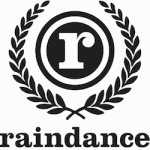Posts in this series:
Raindance 2011- Another Earth to open Raindance
- 18 World Premieres at Raindance
- Festival Preview: 10 Unmissable Raindance Films
- Another Earth
- Interview – Raindance Founder, Elliot Grove
- Skinning (Šišanje)
- Black Pond
- Fambul Tok
- Interview – Fambul Tok Producer, Libby Hoffman
- Hollow
- Amnesty (Amnistia)
- How To Start A Revolution
- Mesocafe
- By Day and By Night (De Dia y De Noche)
- The Box
- Victims
- Interview – Leaving Baghdad Director, Koutaiba Al-Janabi
- Leaving Baghdad
- Bonsai
- Face to Face
- The Ballad of Des and Mo
- Forget Paris
- No Return (Sin retorno)
- Holy Rollers
- The Wedding Party
- War Games
- Scenes of a Crime
- The Fifth Commandment (El Quinto Mandamiento)
- State of Emergency
- Top Ten: Raindance Films
Released: 2011
Director: Ja’far ‘Abd Al-Hamid
Starring: Daphne Alexander, Nasri Sayegh
A unique take on the Iraq War which would have worked better on TV
The war in Iraq and the search for Weapons of Mass Destruction (WMD) have been a source of inspiration for a number of films including In The Valley of Elah, The Hurt Locker and the hugely disappointing Green Zone. All of these come from a Western (American) perspective and are a curious mixture of gung-ho US flag-waving and admissions of guilt and regret by liberal film-makers. Mesocafe, which premiered at the Raindance Film Festival, is the latest in the trend but it comes from the point of view of the Iraqi diaspora in London in the days immediately before the war began in 2003.
Yusif, played by Nasri Sayegh, is an underground Iraqi blogger opposed to both the regime of Saddam Hussein and UN sanctions against his country. Yusif risks his life by travelling to London to meet with politicians and journalists and to publicly campaign against sanctions. In London he spends his time with exiled political leaders, anti-sanctions campaigners and a group of disparate Iraqi exiles who congregate at Mesocafe. Here, he falls in love with the beautiful Bisan, a translator of books from Arabic into English.
The film has a unique point of view and an exciting voice but there’s something missing from Mesocafe. The story doesn’t convince or compel as much as it should.
 Part of the reason for the film’s failure to engage is the poor acting throughout. Daphne Alexander and Nasri Sayegh as Bisan and Yusif are both very good but the rest of the cast are pretty appalling. It’s as if the rejects from small village am-dram societies got together to show the world that they could be actors. I’ll be generous and allow for the possibility that most of the cast are not native English speakers but that isn’t an excuse for the actors who do count English as their first language.
Part of the reason for the film’s failure to engage is the poor acting throughout. Daphne Alexander and Nasri Sayegh as Bisan and Yusif are both very good but the rest of the cast are pretty appalling. It’s as if the rejects from small village am-dram societies got together to show the world that they could be actors. I’ll be generous and allow for the possibility that most of the cast are not native English speakers but that isn’t an excuse for the actors who do count English as their first language.
There’s also too many storylines going on at the same time. The young man trying to learn Arabic, the husband desperate to speak to his wife in Syria, the podcaster angry at how opponents of Saddam’s regime are used as pawns by British and US proponents of the invasion of Iraq. Each individual story is intriguing and deserving of being told but all together they distract from the central narrative of Bisan and Yusif. The love story is sweet and tender but finds itself lost. Had the focus been more on Bisan and Yusif, Mesocafe would have been a much better watch.
I wonder if this would have worked better as a six-part TV series. The characters would have benefited from longer development time and the more intimate nature of a television show and an episodic structure would have suited Mesocafe’s tale of community better than a cinematic work.
The film does a good job of discussing the likelihood that WMDs exist while not relying too heavily on hindsight. While a compelling argument is given against their presence it it entirely believable and acceptable in the context of the knowledge available in 2003. Also ringing true was the sadness and frustration felt by the Iraqi exiles who want to see the removal of Saddam Hussein from power but are shocked by the destruction caused by the UN sanctions and the “shock and awe” campaign.
I applaud writer, producer and director Ja’far ‘Abd Al-Hamid for the creation of Mesocafe. It hasn’t quite worked but it is good to see a British film with a new perspective on the Iraq War. It’s a bold and unique piece of film-making and for that alone it deserves praise.

